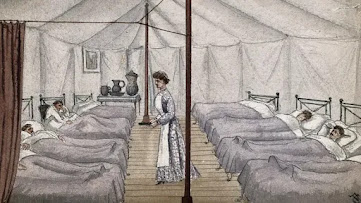"Global health officials are on high alert as an epidemic of a deadly illness (Marburg virus) has been confirmed in Equatorial Guinea by the World Health Organization (WHO).
Samples from the region have been rushed to Senegal for testing as cases of the illness, which include fever, fatigue, vomiting, and diarrhea, have already claimed 9 lives and are suspected in 16 other patients in the African region. With the virus potentially spreading, officials are urging the public to take precautions and remain vigilant in the coming days."
Dr. Matshidiso Moeti, WHO Regional Director for Africa said "Marburg is highly infectious. Thanks to the rapid and decisive action by the Equatorial Guinean authorities in confirming the diseases"
"The Marburg virus is a highly lethal disease, with an average fatality rate of 50%. The virus is believed to be naturally hosted by Rousettus aegyptiacus, also known as fruit bats from the Pteropididae family. As the search for a cure intensifies, scientists and health officials are working tirelessly to better understand this deadly virus and how it spreads, with fruit bats being a critical area of research in the fight to prevent future outbreaks."
Transmission:-
Emerging from the depths of mines and underground caves, a deadly infection has taken hold. This illness, caused by exposure to Rousettus bat colonies, spreads much like the infamous 'Corona virus, through human-to-human contact and contaminated equipment.
The disease is so potent that people remain infected for as long as their blood contains the virus, making it all the more critical for health officials to identify and treat infected patients quickly to prevent further spread."
Symptoms:-
"Picture this: a sudden onset of high fever and headache that quickly escalates to intense muscle pain, diarrhea, and abdominal cramping. This is just the beginning of a terrifying illness that can develop into severe hemorrhagic manifestations within just a few days. Fatal cases, marked by fatal bleeding, typically occur around the 8th to 9th day after the onset of symptoms, preceded by severe blood loss and shock
Treatments and Vaccine
"With no vaccines developed yet, preventing the spread of the Marburg virus is critical. While monoclonal antibodies (mAbs) are under development, extensive care and oral rehydration therapy (ORS) remain essential to improving patient survival rates.Health officials are urging the public to stay vigilant and raise awareness of the risk factors for Marburg infection and the protective measures individuals can take to minimize their risk, such as reducing bat-to-human transmission and limiting the risk of human-to-human transmission through infected patients or possible sexual contact.
With prevention and control efforts in place, the fight against this deadly virus continues."
YOU MAY ALSO LIKE:- "Valentine's Day Tragedy: Remembering the Pulwama Attack"




